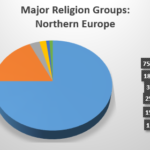Understanding the Crucible: Trials, Transformation, and Spiritual Growth in Religion

Introduction: The Crucible as a Religious Metaphor
In religious contexts, the term crucible carries profound significance. Originally describing a vessel used for melting and purifying metals at high temperatures, it has evolved into a powerful metaphor for the spiritual process of testing, refining, and transformation. This concept appears frequently in sacred texts, religious teachings, and personal faith journeys, representing the challenges and hardships that believers encounter and overcome. Understanding the crucible’s role in religion can offer actionable insights into personal growth, spiritual maturity, and the ways adversity shapes faith. [1]
The Biblical Foundation: The Crucible as Divine Refinement
Scripture uses the crucible to symbolize the means by which God tests and purifies individuals and communities. For instance, Proverbs 17:3 states, “A crucible for silver and a furnace for gold, but the LORD is the tester of hearts.” Here, the process of refining metals is likened to the way God exposes and purifies the inner character of believers through trials. [2]
This metaphor recurs throughout biblical literature. Malachi 3:2-3 describes God as a refiner and purifier, using the image of a crucible to illustrate how adversity removes spiritual impurities. The New Testament continues this theme: Peter writes that “various trials test the genuineness of our faith,” comparing faith to gold tested by fire. In these passages, the crucible is not merely about suffering, but about the potential for transformation and the revelation of true spiritual substance. [3]
The Crucible Experience: Trials as Pathways to Growth
Religious teachings often affirm that trials and difficulties are integral to spiritual development. The process of facing adversity-the crucible-serves to bring impurities to the surface, allowing them to be addressed and removed. This process is considered necessary for the deepening of faith and the strengthening of character.
For example, in Christian practice, enduring hardship is seen not as punishment but as preparation. Faithful individuals are expected to encounter repeated tests, each one designed to further refine their character and bring them closer to spiritual maturity. The crucible therefore becomes a recurring stage in the journey, with each trial offering new opportunities for growth. [3]
Transformation Through the Crucible: Lasting Change and Spiritual Identity
Beyond immediate hardship, the crucible experience is believed to engender lasting transformation . According to theological perspectives, these tests are intended to connect believers’ premortal, mortal, and postmortal identities, forging a stronger spiritual self. The process is not simply about enduring suffering but about emerging changed-closer to the divine ideal. [4]
In practical terms, this means that the lessons learned and the character developed within the crucible have enduring effects. Believers are encouraged to see each trial as part of a larger divine plan, one that leads to spiritual increase, greater wisdom, and ultimate fulfillment of religious purpose.
Practical Guidance: Navigating Your Own Crucible
If you are experiencing a period of trial or hardship, religious frameworks suggest several actionable steps to navigate and benefit from your crucible experience:

Source: ccpacanada.com
- Reflect on the Meaning: Consider how your current challenge might be refining your character or deepening your faith. Journaling or meditative prayer can help clarify what is being purified.
- Seek Support: Engage with faith communities, spiritual mentors, or religious leaders who can provide guidance and reassurance during difficult times. Many churches and religious organizations offer counseling and support groups.
- Embrace the Process: Rather than resisting adversity, try to accept it as a necessary part of spiritual growth. This perspective can help reframe suffering as opportunity.
- Look for Transformation: After your period of trial, identify the ways in which you have changed. What strengths have emerged? What impurities have been removed?
For additional support and actionable resources, consider reaching out to official religious organizations, or searching for counseling and spiritual development programs offered by established faith communities. You may contact your local church, synagogue, mosque, or temple for specific programs related to spiritual growth and counseling. Many national organizations, such as the National Association of Christian Counselors or your denomination’s headquarters, can provide directories of certified counselors and faith-based support services.
When seeking professional help or spiritual guidance, use official search terms such as “spiritual counseling,” “faith-based support groups,” or “religious mentorship programs” on credible platforms or organization websites. Avoid relying on unofficial sources, and verify the legitimacy of any program before enrolling.

Source: everythingaboutenglish.weebly.com
Challenges and Solutions: Overcoming Obstacles in the Crucible
Facing the crucible is rarely easy. Common challenges include feeling isolated, doubting one’s faith, or misunderstanding the purpose of suffering. It is important to recognize that such feelings are normal and that overcoming them can lead to greater resilience. Religious teachings emphasize that the journey through the crucible is often messy and unpredictable, but ultimately worthwhile. [5]
Potential solutions include:
- Community Engagement: Find strength in shared experiences by participating in group discussions, prayer circles, or support groups.
- Professional Guidance: Seek advice from spiritual leaders or certified counselors who understand the theological and psychological aspects of suffering.
- Scriptural Study: Engage in regular study of sacred texts to better understand the role of trials and the promises of transformation.
- Mindful Acceptance: Practice mindfulness and acceptance, focusing on the present moment rather than fearing the outcome.
Alternative approaches, such as interfaith dialogue, holistic wellness programs, or personal retreats, can also provide valuable support during times of testing.
Key Takeaways: The Value of the Crucible in Religious Life
The crucible stands as a central metaphor in religious life, symbolizing the process by which individuals are tested, refined, and transformed. It teaches that adversity is not only inevitable but essential for spiritual growth. By understanding and embracing the crucible, believers can unlock deeper faith, stronger character, and a more profound connection to the divine.
References
- [1] Bible Hub (2023). Crucible – Topical Bible: Definition and Metaphor.
- [2] BibleRef (2023). Proverbs 17:3 Commentary: Meaning and Application.
- [3] Insight for Living Ministries (2016). Crucible for Christ: Devotional Reflection.
- [4] BYU Speeches (1999). The Crucibles of Eternal Identity.
- [5] Sabbath School Net (2022). The Crucibles That Come: Lesson and Discussion.






